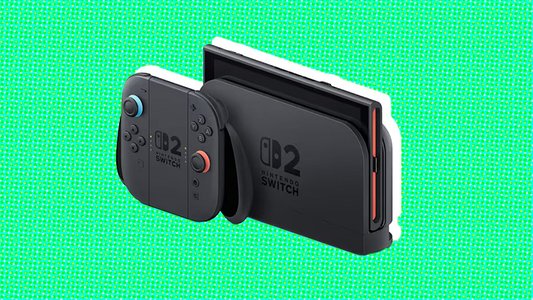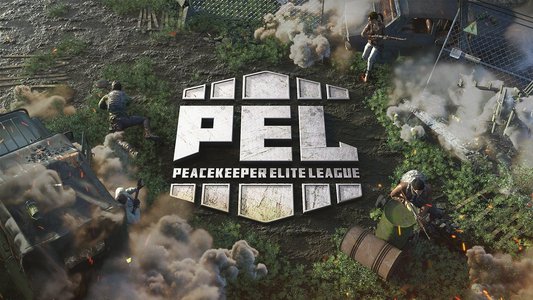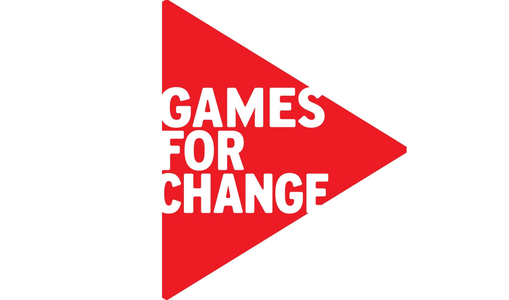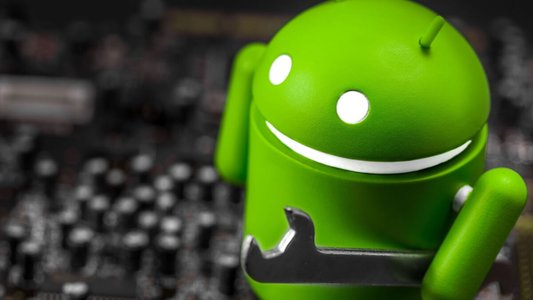In the ever-evolving world of game development, Unity inject methods and prevention have become central topics among developers seeking to protect their projects. Unity inject refers to the injection of arbitrary code or cheats into Unity-based games, enabling hackers to gain unfair advantages. As the popularity of Unity ECS inject patterns makes projects more modular and dynamic, game developers must now also contend with sophisticated injection cheats that target those systems. This article dives deep into Unity inject prevention, Unity injection cheats, unity ecs inject mechanics, and effective Anti Injection strategies to secure your game environment.
When we talk about Unity inject prevention, we’re referring to the suite of techniques and tools designed to detect or block the unauthorized insertion of external code into a game process at runtime. Hackers utilize injection methods to manipulate game memory, bypass client-side validation, or forge game state changes—actions that ruin multiplayer balance and hurt legitimate players. Unity injection cheats often focus on the IEntityManager or ComponentData generated by Unity ECS inject systems, mapping duplicate entities or overriding game logic. As a result, effective Unity inject prevention is no longer optional—it’s a critical component of any anti-cheat framework.
Understanding how Unity injection cheats work—particularly how unity ecs inject features are targeted—helps developers decide what solutions to implement. As Unity games become more complex, developers may adopt ECS (Entity Component System) architectures, which can make the injection attack surface more intricate but also expose new detection opportunities. This article will demonstrate practical Anti Injection countermeasures, explore Unity inject prevention tools, and offer tips for creating a robust in-game defense. By the end, you'll better understand why Unity inject detection is essential and which strategies can shield your game’s integrity.
What Is Unity Inject and How Cheats Use It
Understanding Unity inject
Unity inject refers to a process where external code—often cheat DLLs or code snippets—is injected into the memory space of a Unity-based game. Attackers take advantage of Windows API calls like CreateRemoteThread or WriteProcessMemory to forcefully insert their cheat engine into the target process. Once injected, the cheat can hook internal Unity functions such as Update(), ProcessEvents(), or ECS systems, abuse reflection to override private members, or bypass internal validation mechanisms.
Common Unity injection cheats
Attackers use a variety of techniques to inject cheats:
▪ DLL injection via Windows APIs or SetWindowsHookEx hooking▪ IL injection targeting C# assemblies in the Unity player
▪ Memory editing tools like Cheat Engine to patch or override game logic
▪ Harmony-based method patching to modify game behavior at runtime
These cheats may automate aim, reveal enemy positions through memory reads, reduce recoil, or manipulate ECS-managed component data.
Why Unity inject prevention Matters
Protecting fair gameplay
Unity injection cheats directly harm multiplayer fairness. Developers work diligently to ensure everyone has the same fair start—cheats undo that. By implementing Unity inject prevention, developers keep the match balanced and satisfying, protecting player base trust and game reputation.
Stopping cheating economies
Beyond gameplay, Unity inject cheats can disrupt virtual economies. Think unauthorized currency boosts, duplicated items, or tampering with reward systems. If such cheats run rampant, legitimate transactions devalue, causing revenue loss and player community damage.
Maintaining live-service security
Today's Unity games frequently operate as live services—updating frequently, supporting in-game stores, and offering events. Unity ECS inject architectures often include cloud sync and server validation, but injection cheats can still intercept events or manipulate outcomes. Unity inject prevention ensures integrity between client, server, and in-game events.
Key Components of Effective Anti Injection Strategies
When building an Anti Injection system to protect your Unity game, several components must work together seamlessly:
▪ Process Integrity Checks: Validate loaded modules, digital signatures, or unexpected handles to catch unauthorized DLLs.▪ Memory Scanning Tools: Monitor memory regions for typical injection signatures or known cheat patterns.
▪ Function Hook Detection: Detect inline or IAT hooks on within-game functions to catch runtime patching.
▪ ECS Data Validation: Cross-check critical component data replicated over ECS. Spot anomalies or out-of-band changes.
▪ Behavioral Analysis: Monitor player actions—like impossible movement speeds, superhuman aim, or event timing outliers.
These key features work in concert: memory scanning finds the threat, hook detection confirms it, ECS validation triggers it, and behavior analysis enforces it.
Tools and Services for Unity inject prevention
Commercial anti-cheat SDKs
Industry providers like JikGuard, EasyAntiCheat, BattleEye, and VAC offer game-process monitoring, obfuscation, rootkit detection, and behavior tracking. JikGuard, for instance, features memory protection, module verification, ECS-level validation, and network detection to stop Unity inject cheats in real time. Their approach uses periodic function integrity checks, module signature scans, and ECS delta detection.
Custom Unity inject prevention
Unity also allows developers to build their own Anti Injection tools using these techniques:
▪ Hooking WinAPI calls to detect code injection attempts▪ Implementing signature-based module scanning
▪ Encrypting critical ECS component fields or verifying components server-side
▪ Obfuscating method names and DLL names to complicate reverse-engineering
▪ Randomizing attribute offsets so reflection-based modifiers break
Combining custom measures with third-party SDKs yields layered protection.
Challenges in Unity Inject Defense
ECS-specific vulnerabilities
Unity’s ECS architecture optimizes for performance and clean code separation—but that also introduces new attack surfaces. For example, injected code may spoof entity creation, modify shared data, or intercept component processing before the system updates. To counter this, Anti Injection systems must check for unregistered archetypes, unauthorized entity spawns, or component value jumps out of expected ranges.
Cheat obfuscation tactics
Cheaters evolve too. They employ advanced techniques:
▪ Packing spoofed DLLs to avoid signature detection▪ Using kernel-level drivers to hide injection from user-mode scans
▪ Injecting encrypted payloads or self-unpacking modules
▪ Delaying cheat activation to evade integrity checks at startup
Anti Injection must match pace: periodic rescans, hardware-backed checks, virtualization-based monitoring, or kernel-level SDKs may help defend against advanced threats.
Implementing Unity injection prevention In Your Game
Step-by-step guide for developers
Follow this process to build effective Unity inject prevention:
▪ Integrate a verified Anti Injection SDK (e.g., JikGuard), enabling module scans and hook detection.▪ Implement startup integrity checks—verify .NET assemblies, signatures, and ECS hashes.
▪ Schedule periodic memory and ECS checks throughout gameplay.
▪ Validate ECS data server-side—reject impossible player states.
▪ Obfuscate or randomize method names to block reflection injection.
▪ Monitor player behavior & performance—flag anomalies for manual review.
▪ Build secure update pipelines to patch cheat holes quickly.
▪ Keep cheat signatures updated and share relevant patterns across versions.
By layering these measures, you establish a unified defense-in-depth approach.
Unity inject prevention Best Practices
Use server-side authority
Shifting critical game logic and data validation to your server ensures injection cheats on the client only do minor damage. With ECS, ensure only trusted state deltas pass validation and reject unsynchronized changes or injection-based writes.
Proof of integrity
Implement cryptographic checksums to verify game code and ECS assemblies remain untouched. Periodic fingerprinting can reveal tampering early.
Defensive code design
Write code in a way that resists injection. Techniques such as dynamic method invocation, sequence obfuscation, and runtime-generated variable names complicate cheat adaptation.
Continuous updates
Unity inject cheats evolve fast—so should your defense. Monitor cheat forums, maintain active community reporting, and release Anti Injection updates frequently.
Case Study: Defeating ECS Inject Cheats in a Multiplayer Shooter
In one case, a multiplayer Unity shooter was compromised through unity ecs inject cheats that spawned extra ammunition and health pickups by injecting into ECS manager at runtime. The Anti Injection strategy included:
▪ Server-side ECS validation rejecting unauthorized spawn patterns▪ Module fingerprinting of the ECS DLL to detect tampering
▪ Function hook detection on key ECS scheduling functions
▪ Player telemetry analysis spotting impossible pickup rates
This layered approach stopped the cheat in under 48 hours and prevented resurgence across multiple hotfixes.
Tips to Detect Unity injection Cheats Early
Analyze telemetry logs
Use event logging to track in-game metrics like pickup frequency, position deltas, and interaction counts. Abnormal spikes or consistency issues indicate possible ECS injection manipulations.
Monitor module loads
Log loaded DLLs and CLR modules. Flag unsigned or unknown modules referencing Unity APIs or ECS systems.
Audit ECS component states
Take snapshots of critical ECS data (health components, ammo counters). Compare client and server states to spot anomalies potentially caused by Unity injection cheats.
Future of Anti Injection in Unity Games
Going forward, expect tighter integration of Anti Injection protections with game engines. Potential trends include:
▪ Built‑in Unity integrity hooks▪ HSM (hardware security modules) support in ECS
▪ Kernel-level cheat prevention layers on consoles and PC
▪ Automated cheat signature sharing across developers
Unity inject prevention will remain an arms race, but proactive multi-layered strategies can tip the balance.
Conclusion
Unity inject presents a real threat to game integrity, especially when targeting powerful ECS architectures. From malicious DLL injection to runtime method hooks and memory patches, Unity injection cheats can quickly become pervasive. However, implementing effective Unity inject prevention—through Anti Injection SDKs, custom defenses, telemetry analysis, and server-side enforcement—can safeguard your game and players.
By understanding injection vectors and deploying layered countermeasures, Unity developers can neutralize threats and maintain a fair, secure game environment. The fight against Unity injection cheats requires vigilance, rapid updates, and strong design—but the result is a trusted player experience and sustained game success.
For developers looking for a comprehensive and seamless game protection solution, JikGuard Game Protection offers cutting-edge encryption and anti-cheat technology to ensure your game remains secure without compromising performance.Why Choose JikGuard Game Protection?
√ On-Demand Security Assessment:
Not sure if your game needs encryption? JikGuard provides free security testing and reports, helping you identify potential risks through penetration testing and in-depth analysis.√ Minimal Performance Impact:
JikGuard’s encryption system only decrypts resources when needed, ensuring that files remain encrypted in the cache and have virtually no effect on loading speed or game smoothness.√ Seamless Multi-Channel Packaging:
Supports mother package encryption, meaning all sub-packages remain protected without requiring additional processing for different distribution channels.√ No SDK Required:
Unlike traditional solutions, JikGuard does not require SDK integration—simply run a command, and the encryption process is handled automatically.√ Ultra-Low Performance Overhead:
▪ CPU usage increase: <0.2%▪ Memory consumption: <1MB
▪ Startup time increase: <25ms
▪ Package size increase: <1.3MB
Ensuring a smooth and seamless gaming experience.
With JikGuard Game Protection, you can focus on game development while ensuring top-tier security against cheats, resource leaks, and competitive analysis. Protect your game today and keep your vision intact!

































